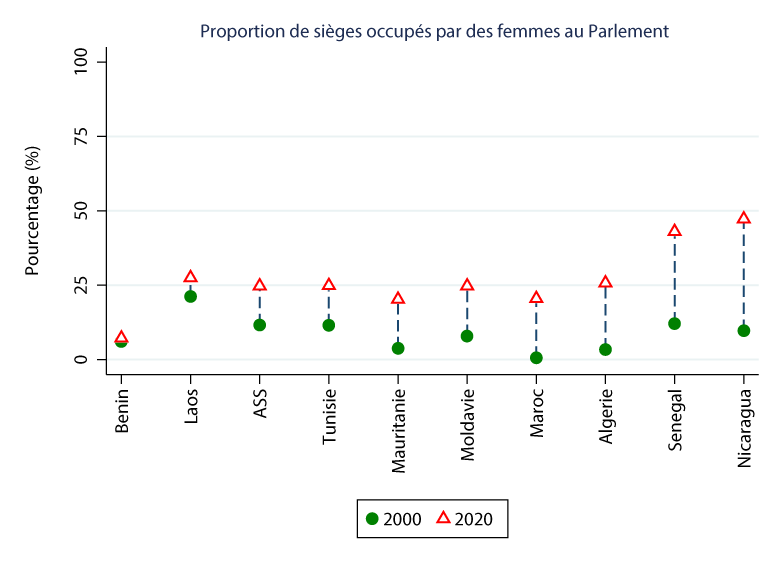NOUAKCHOTT, June 1, 2021 – As in most West and Central African countries, the COVID-19 crisis has disrupted economic activity in Mauritania, causing growth to fall from 5.9% in 2019 to -1.5% in 2020. This contraction is mainly due to poor performance in the fishery and service sectors, which were severely affected by the pandemic containment measures. COVID-19 has had a particularly severe impact on the well-being of households, three quarters of which have reported a drop in their employment income. This trend has been most evident in the cities of Nouakchott and Nouadhibou, where most service sector employees are concentrated.
The report, A Better Future: Accelerating Economic Recovery by Unlocking Women’s Potential (e), notes that, while economic activity has slowed due to the pandemic, donor support and improved terms of trade have eased pressures on the current account and the fiscal balance. As a result, the debt-to-GDP ratio has remained stable, although the risk of debt distress remains high. In the medium term, growth is expected to rebound thanks to the recovery of the non-extractive sector, coupled with increased mining output and the start of gas production in 2023. “However, the macroeconomic outlook remains vulnerable to four main risks: a prolonged impact of the pandemic, climatic hazards, possible delays in structural reforms, and regional insecurity,” notes Samer Matta, World Bank economist and lead author of the report.
Recognizing that strengthening the potential and opportunities of women and girls is a key condition for economic development, the report’s second chapter focuses on women and analyzes the main obstacles to their economic empowerment. The report finds that gender inequalities in human capital cost Mauritania 19% of its national wealth.
These disparities are present from childhood and occur in numerous spheres of life, preventing Mauritanian women from fully participating in the country’s economic activity.
Women enjoy less protection under the law than men
Although progress has been made over the past decade, women in Mauritania are still subject to discrimination in the legal realm. In 2020, the country ranked 177th in the world on the Women, Business and the Law Index. This legal discrimination occurs across a wide range of areas: in addition to unequal wages and restricted property rights, for example, women are denied access to certain jobs, do not have the legal capacity to be heads of household, and lack protection against inequalities in access to bank loans and employment.



